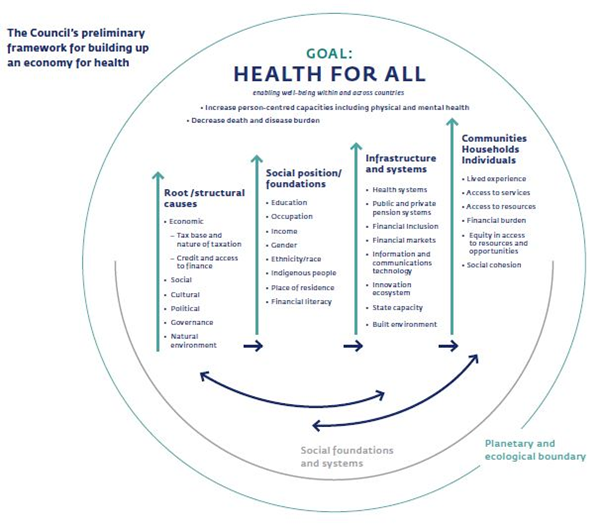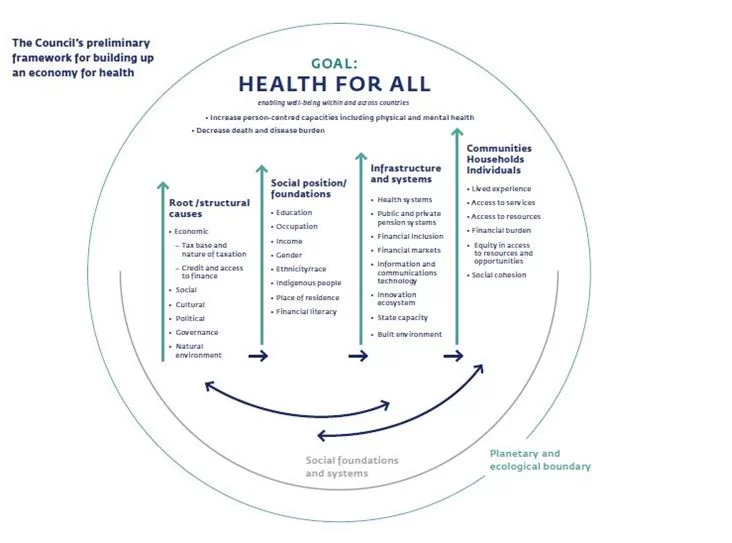In its brief, Valuing Health for All: Rethinking and building a whole-of-society approach, offers evidence detailing the hollowness and dangers of relying on GDP as our primary measure of well-being and basis for policy-making. It proposes a rethinking of value along three dimensions.
- First, we must value planetary health, including essential common goods such as clean water, clean air and a stable climate that respects planetary and local ecological boundaries.
- Second, we must value the diverse social foundations and activities that promote equity, including social cohesion, supporting people in need, and enabling communities to thrive.
- Third, our policies and metrics to evaluate progress must value human health and well-being, with every person able to prosper physically, mentally and emotionally.
The Council’s second brief – Financing Health for All: Increase, transform and redirect – seeks to move away from old paradigms that entrench the current financing equilibrium, such as narrowly defined rules that do not allow lower-income countries to finance Health for All. Increasing the amount of finance is necessary but it is insufficient unless it is oriented to achieving an objective – thus the call for better finance.
In its brief on Governing health innovation for the common good, the Council outlines a long-term vision for a new end-to-end innovation ecosystem to deliver equitable access to health. This should include the introduction of conditionalities for public investments, reforming corporate governance to better reflect stakeholder value, strengthening public health innovation capacity and reshaping knowledge governance for the common good.
To do the above, governments at all levels need strong public sector capacity, well beyond health ministries, to champion health in all policies. COVID-19 starkly revealed that governments worldwide are unprepared for significant health emergencies. In its fourth brief on Strengthening public sector capacity, budgets and dynamic capabilities towards Health for All, the Council outlines specific actions government can take.
The Council also produced numerous articles and statements outlining its vision and evidence for an economic system based on values that promote health for all, and a framework for building up an economy for health.

During its second year, the Council will be striving to put Health for All at the centre of the strategic agenda of international and regional financial institutions and governments worldwide, and to strengthen WHO’s position to advance an agenda for health and well-being. The Council will submit its final report to WHO’s Director-General in May 2023 during the 76th World Health Assembly. The final report will include recommendations for governments and multiple sectors including finance and health, international organizations, the private sector and civil society. The Council will also provide the Director-General with guidance on ways in which the WHO Secretariat could integrate the Council’s recommendations and learning from its engagement across WHO and with other stakeholders in order to optimize WHO’s work and collaboration in this area.












